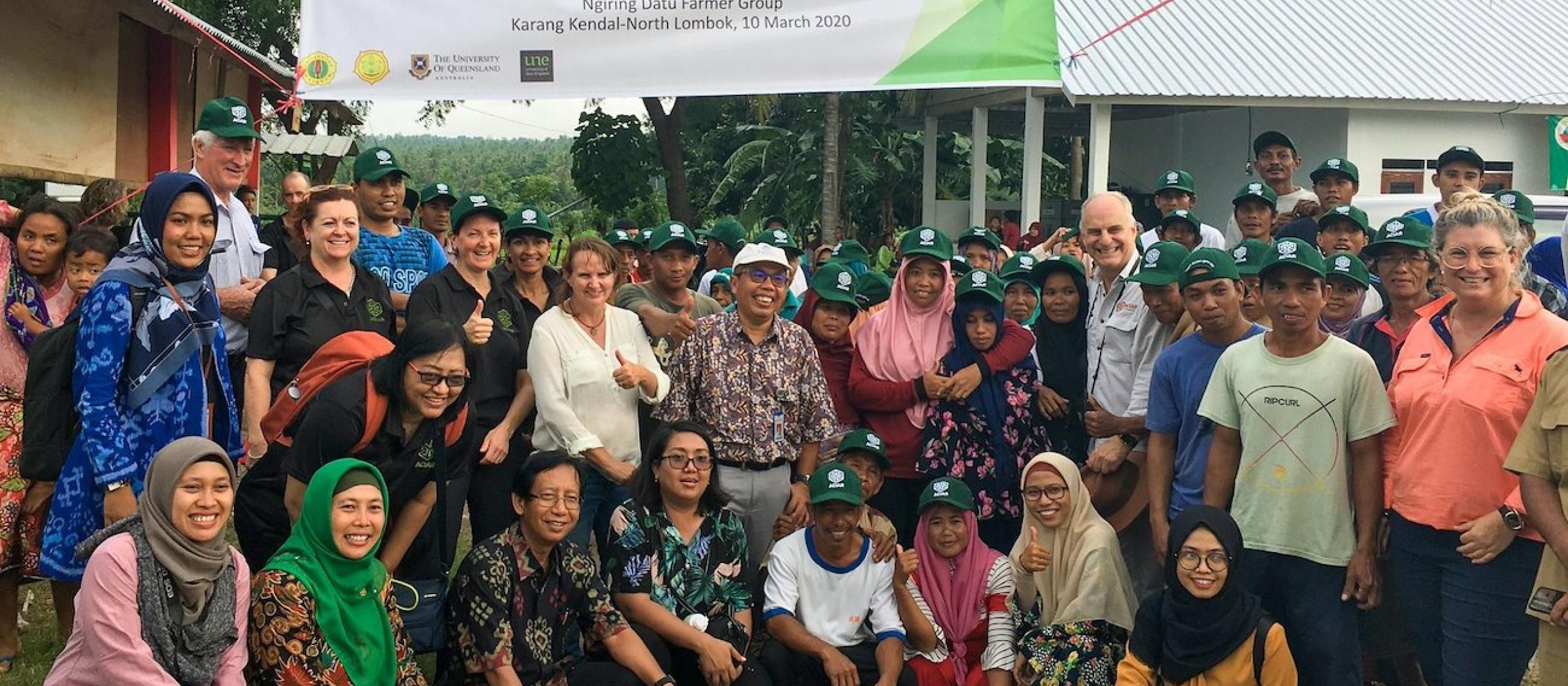- HomeHome
-
About ACIAR
- Our work
- Our people
-
Corporate information
- ACIAR Audit Committee
- Commission for International Agricultural Research
- Policy Advisory Council
- Agency reviews
- Executive remuneration disclosure
- Freedom of information (FOI)
- Gifts and benefits register
- Information publication scheme
- List of new agency files
- Contracts
- Legal services expenditure
- Privacy impact assessment register
- Commonwealth Child Safe Framework
- Benefits to Australia
- Careers
- 40 years of ACIAR
-
What we do
- Programs
- Cross-cutting areas
- Resources
- Where we work
-
Funding
- Research projects
- Fellowships
-
Scholarships
- John Allwright FellowshipScholarships to study in Australia for ACIAR partner country scientists to have Australian postgraduate qualifications
- ACIAR Pacific Agriculture Scholarships and Support and Climate Resilience Program
- Alumni Research Support Facility
- Publications
- News and Outreach
Date released
25 March 2020
Advising the Australian Minister for Foreign Affairs on the formulation and funding of agricultural research and development programs is the Commission for International Agricultural Research—a seven-person body chaired by Mr Don Heatley OAM. The Commission plays a role in guiding the operating and governance framework in which ACIAR functions.
Among the Commissioners is Dr Sasha Courville, bringing with her more than two decades of expertise in supporting business to address societal challenges—including in her current position as General Manager Social Impact at National Australia Bank where she identifies, incubates and supports the scaling up of shared-value initiatives.
‘There are many things that are attractive about ACIAR,’ Dr Courville explains. ‘It is a powerful, little organisation in the development-aid world.
The focus on agricultural development through a research lens I found to be incredibly important. And the private sector being increasingly engaged in development and business opportunities in the region I found very exciting.’
A shared-value future
The Commission meets four times a year, with one meeting per year held in an ACIAR partner country. This encourages the Commissioners to see projects and engage with local partners and governments on the ground.
What is ‘shared value’? Shared value is a business strategy designed to solve social issues profitably.
‘The meetings often do require a lot of background reading, and in addition to that there are a number of events Commissioners can participate in to better understand and represent ACIAR.’
Since her tenure as Commissioner began in December 2017 Dr Courville has been encouraging ACIAR research programs to better connect with the private sector and to identify ways to work with businesses that deliver both commercial and development outcomes.
‘There’s a lot more thinking around shared value and how to integrate this fantastic research organisation with the business side of things,’ she says. ‘We want to encourage [ACIAR] Research Program Managers and the broader research community to think a bit differently around the role the private sector can play. This is an important transition for ACIAR to be making.’
Building connections with the private sector and looking at projects through a business lens may be new for staff of ACIAR and their partners, but where possible, Dr Courville is getting hands-on by helping to build connections with private-sector organisations as well as build greater awareness of ACIAR among her industry partners.
‘ACIAR is an incredibly powerful organisation that the private sector can benefit from,’ she said.
‘At conferences and events, I always have two hats on, and I’m always on the lookout for opportunities or people I need to connect ACIAR teams with.’ But she says there is a lot more that can be done to help build private-sector connections within ACIAR, and encouraging ACIAR staff and partners to attend shared-value conferences and impact investment workshops is an important step towards achieving this and helping ACIAR understand the funding tools that may be available to it.
Building on partnering strengths
Dr Courville says private-sector engagement can be challenging for some ACIAR partner countries or regions where there is a lack of trust. Ensuring everyone involved in a project has the same longterm interests, she says, is the priority.
‘You can start small, piece by piece, to build and create trust. It’s that unique link that ACIAR has in being able to bring to the table governments, research, agriculture and aquaculture sectors and the private sector to collaborate. The convening power of ACIAR is a powerful attribute, and this is because they have had these partnerships for years and years. ACIAR is a stable, long-term partner.’
There is a lot more that can be done to help build private-sector connections: start small, build trust and find common longterm interests.
ACIAR’s strengths in research that benefits agricultural sectors in both partner countries and Australia, Dr Courville says, cannot be underestimated in building private-sector interest. And its approach to research for development is also a standout for businesses looking at investment in initiatives that have both development and commercial benefits.
‘I am just so thrilled with ACIAR’s strategy in terms of having an incredible, multi-pronged approach to research for development outcomes in terms of considering climate change and gender as crosscutting initiatives among others,’ she says.
With this approach, Dr Courville says she has seen ACIAR develop a more networked and connected approach to delivering its research projects, with more effective ways to measure outcomes and impact.
‘It’s been fascinating to see how ACIAR had taken an amazing strategy and brought it to life, getting the infrastructure to support this approach to its research.’
Read about the Commission for International Agricultural Research's latest trip to Indonesia.
Key points
- Engaging with the private sector can help to solve social and development issues but requires a new way of working together.
- Commissioner for International Agricultural Research Dr Sasha Courville is using her expertise in shared-value approaches to help ACIAR work with the private sector more effectively.
Feature image: Australia’s Commission for International Agricultural Research is welcomed by locals at Karang Kendal, North Lombok, Indonesia




